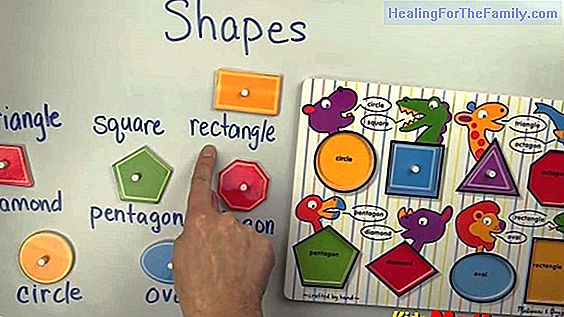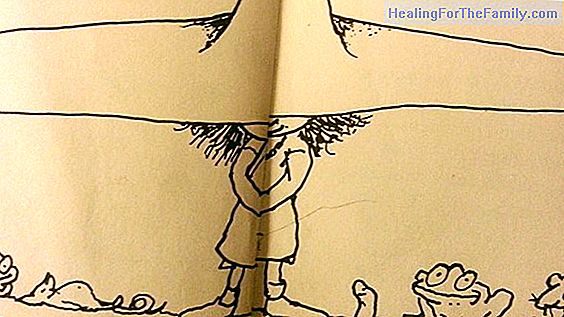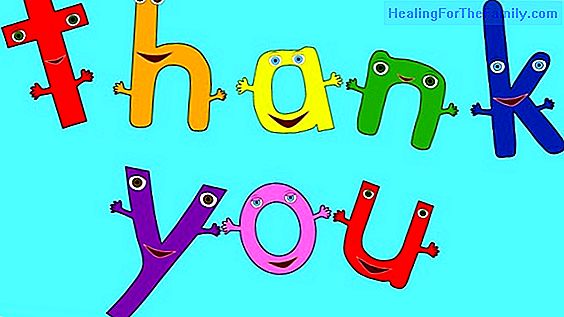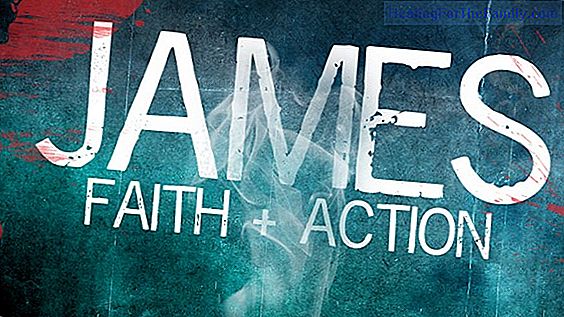When we should take the child to the speech therapist
It is inevitable to ask this question as a father when we see that our son / daughter does not speak, speaks little or, if he / she does, barely understands . This happens, in many cases, because you can not avoid comparisons with siblings, other children in the class, friends from the urbanization
It is inevitable to ask this question as a father when we see that our son / daughter does not speak, speaks little or, if he / she does, barely understands. This happens, in many cases, because you can not avoid comparisons with siblings, other children in the class, friends from the urbanization or the park, relatives ...
That is why we need to know some symptoms that could be a sign of delay or alteration in the language, not only oral but also written, since both are objects of logopedic rehabilitation; like voice and hearing, so we will also pay attention to possible dysfunctions in them.
When it is convenient to go with the child to a speech therapist

- If you just keep the eye contact, that is, do not look into the eyes or do not have communicative intention. Check if you have a joint look with the one you are talking or playing with. These attempts to communicate with the interlocutor are perceptible even from the first months of life, so if you do not see this interaction you must be attentive.
- Does not respond to his name or is not surprised when strong blows or powerful sounds occur. This could denote possible hearing problems, which are the first to be discarded and resolved so that speech can develop.
-At 2 years or 2 and a half years the speech is null, almost non-existent or completely unintelligible. At this age, if the language development is normal, there should be a minimum repertoire of about 40-50 different words. Of course, many children show a more restricted repertoire without this necessarily implying a delay, but it is true that at this age there should have been a certain "explosion" in their vocabulary.
- Does not understand or takes too long to respond to simple orders and / or questions. It is important to verify that there are no compression difficulties since what a child does not understand is unable to reproduce it, which could also translate into expressive complications.
- If at 3 years he does not have a verbal fluency that allows him, at least, to express his most basic needs or desires and be understood by people outside his immediate environment. At this age, children are usually able to put together several words, making simple but effective sentences. If your child tries to communicate but he does it only by gestures, mimicry and / or short vocalizations, it is good that you consult the opinion of an expert.
- Around 4-5 years old you check that one or more of the sounds it emits are distorted (instead of a dog, for example), they are omitted (for example, peta instead of a ball), or , replaced by others (tol instead of sun). All these errors can give the feeling that his speech is infantilized, not very mature. If these defects of the joint are abundant before age 4 and are causing you to barely understand what the child says, it is also convenient to address a speech therapist. A - At that same age range (4-5 years) you detect
alterations of teething, mandibular and / or salivation that affect the feeding and swallowing: problems to chew or swallow, control of drooling, dental malformations, etc. -
At 5 years old he continues to use excessively simple sentences (there is no use of subordinates or a variety of verb tenses) and no words of function (articles, prepositions, conjunctions, ...). All this leads him to demonstrate complications when narrating experiences. -
Lose your voice easily or it sounds as if you are forcing it continuously . This happens, frequently, due to misuse or vocal abuse, especially in children who breathe through the mouth, who tend to scream often, etc.- At the time of learning to read and write
shows problems when writing or reading. It is essential to address these difficulties in time for the child to adequately support the foundations of literacy and not be reflected in more complex higher processes such as comprehension and / or writing of texts. - Presents
problems in the acquisition of basic concepts of logical-mathematical reasoning and calculation .In any case, if you have doubts about whether or not your child has difficulties in speech, language or communication, we recommend that you consult a speech therapist as soon as possible. It will give you guidelines to carry out, it will be able to solve your unknowns and, what is more important, it will act if necessary. Early detection along with early intervention are undoubtedly the best guarantees of success.












